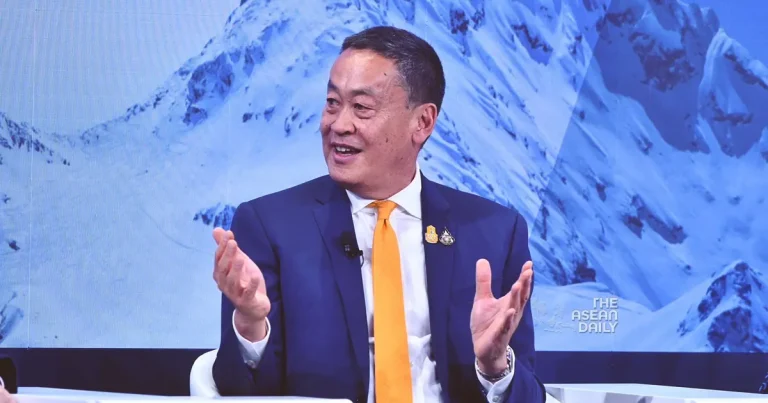12-3-2024 (BANGKOK) Tensions are brewing in Thailand’s economic sphere as the government and the central bank find themselves embroiled in a tug-of-war over monetary policy. The release of former Prime Minister Thaksin Shinawatra, who returned from a 15-year self-imposed exile, has added a new layer of complexity to the situation, reigniting concerns about potential interference in the central bank’s decision-making process.
The dynamic between the government and the Bank of Thailand (BOT) has been strained from the outset of Prime Minister Srettha Thavisin’s tenure. While Srettha prioritized accelerating economic recovery and easing financial burdens on taxpayers, the central bank remained steadfast in its approach, hiking interest rates eight consecutive times to reach 2.5% by September 2023 – the highest level in a decade.
As the new year dawned, Srettha, who also holds the finance minister portfolio, began openly calling for a rate cut. In an unprecedented move, he summoned BOT Governor Sethaput Suthiwartnarueput to his office on January 10, indicating his intention to exert pressure on the central bank until it acquiesced to his demands.
“I told him we should talk over a cup of coffee every week. I don’t mind going to the central bank headquarters,” Srettha told reporters, leaving no doubt about his determination to sway the BOT’s stance.
However, the central bank remained resolute, defying the government’s pressure and keeping rates unchanged at its February 7 meeting. Srettha’s response was swift and unequivocal, urging the BOT to convene an emergency meeting before its next scheduled gathering in April to lower interest rates.
“Even though the central bank is independent, it should not ignore people’s suffering,” Srettha asserted, echoing a familiar refrain from pro-Thaksin governments of the past.
The clash between the government and the central bank has drawn comparisons to previous administrations, where Thaksin-aligned parties have consistently adopted an aggressive stance towards the BOT. During Thaksin’s own tenure as prime minister from 2001 to 2006, he dismissed the central bank governor for rejecting his demand for rate hikes, citing the need to boost consumption.
History repeated itself when Thaksin’s sister, Yingluck Shinawatra, took office in 2011. Her government’s populist policies, including a substantial increase in the minimum wage, prompted the BOT to implement consecutive rate hikes to prevent the economy from overheating. Tensions escalated to the point where Kittirat Na Ranong, the deputy prime minister and finance minister at the time, admitted to contemplating dismissing the BOT governor on a daily basis.
In the present context, the central bank has valid reasons to resist the government’s demands for rate cuts. First, it maintains that domestic demand continues to expand, attributing Thailand’s economic struggles to external factors and structural issues that cannot be resolved through monetary policy alone. Moreover, the delay in executing the government’s budget due to the prolonged process of prime ministerial selection has further hampered economic growth.
Secondly, concerns over a weakening Thai baht loom large, as the BOT remains wary of the repercussions of cutting rates before the U.S. Federal Reserve does. The specter of the 1997 Asian Financial Crisis, which originated in Thailand, has instilled in the central bank a deep-rooted commitment to defending the national currency.
Lastly, the BOT’s pride as an independent institution is at stake. Having witnessed the consequences of succumbing to political pressure in the past, the central bank is determined to uphold its autonomy and maintain the financial market’s confidence in its decision-making prowess.
While the BOT adjusts rates to keep inflation within the 1-3% target range, the government’s impatience is palpable. Srettha has pledged to achieve an average 5% annual GDP growth during his four-year term, an ambitious goal that has been met with skepticism from economic analysts, who predict Thailand’s potential growth rate to be around 2-4% in the post-pandemic era.
With the grand coalition government formed in exchange for support from pro-military parties, the ruling Pheu Thai Party can no longer claim to be a champion of democratic reform. Its sole focus must be on reviving the economy before the next general election, scheduled no later than 2027.




